How do you manage your expectations? Do you fit into one of the following categories? Expectations can be categorized as high, low or none.
I recently was listening to a forum discussion about expectations. One person offered that they used to have high expectations about different things and they often were disappointed. Another person said they have low expectations so that they were not setting themselves up to be disappointed. Still a third view I heard was that they had no expectations at all because, again, they did not want to be disappointed.
Expectations impact our lives both positively and negatively. David Rock, author of “Your Brain at Work” (HarperCollins, 2009) and the director of NeuroLeadership Institute, says there are two sides of expectations. The first is what we expect from others, and the second is what we expect from ourselves. How we manage those expectations is critical to how we view our experiences and pursue our goals.
Rock says there is a physiological reason we are disappointed when life does not meet our expectations. He states, “When we don’t hit our expectations our brain doesn’t just get slightly unhappy, it sends out a message of danger or threat.” It suggests that the well-known cliche ‘hope for the best but expect the worst’ has much truth to it.
Rock also mentions that when the neurotransmitter, dopamine, a ‘feel good’ hormone, is released it makes us feel good when something positive happens.
Rock explains, “If we expect to get x and we get x, there’s a slight rise in dopamine. If we expect to get x and we get 2x, there’s a greater rise. But if we expect to get x and get 0.9x, then we get a drop.
What is the downside when our expectations are not met? Our negative feelings of disappointment are much stronger than our ‘feel good’ feelings when expectations are exceeded.
Knowing this is helpful because understanding what is in our control and what is not can help us manage our expectations. For example, if you are currently seeking employment in a not-so-great job market you can look at things two different ways. With a job market that isn’t flourishing, you may have an unrealistic expectation of being hired quickly, or, you might make an assumption that you’ll never work again. One remedy may be that you control what you can control. For instance, you can research the market, network and build relationships, and apply for positions you are qualified for.
So what is the takeaway here? Learn to be adaptive and more flexible. Understanding what we can and cannot control is key. Consider the choices you have, weigh them out, and make a decision based on realistic expectations.
As Carol Dweck, a professor of psychology at Stanford University, says “A good teacher sets really high expectations, but lets a student think he can reach them. That’s most motivating for students.”
I believe we are all students here on earth school. Set realistic expectations with solid strategies to reach those goals and manage those expectations. As Dweck says, “It is having flexibility in our expectations and being willing to change tracks without self-blame that has been shown to increase well-being.”
And to paraphrase Oscar Wilde, the flamboyant and quick-witted cultural commentator, expect the unexpected!

